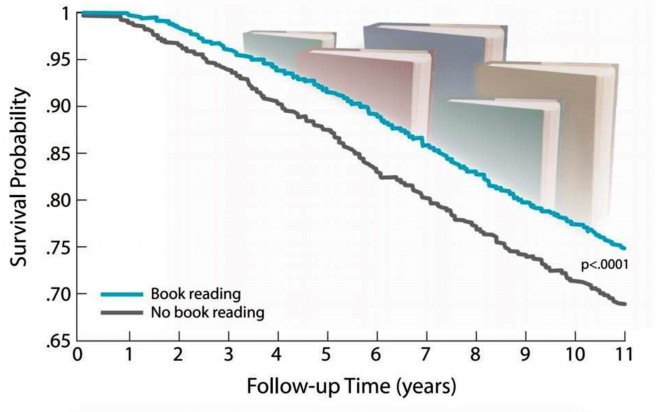Good news for bookworms. People who read books live longer than those who don't. A study in the Proceedings of Social Science & Medicine notes that one of the positive effects of reading books is a longer life. Check how many years longer regular readers live than non-readers. Gustave Flaubert was so right when he claimed that it is easier to endure our existence if we regularly turn to literature.
Writer George RR Martin, author of Game of Thrones, once said, "A reader has a thousand lives before he dies... A man who does not read has only one." A study proceedings Social Science & Medicine she showed that people who read books live longer like those who don't read.

A study that covered 3,635 people over 50 years old, showed that those who read up to three and a half hours a week had 17 percent less likely to die in the next dozen years that the study lasted. Individuals who read one more time, however, had enough 23 percent less likely to die than those who haven't even sniffed the book during that time.
READ MORE: Les Diners de Gala – Salvador Dalí's extravagant cookbook reprinted after 40 years

We buy by reading regularly two years of life, can be understood from a twelve-year study. It is during the study period 33 percent of participants died from the group of non-readers and only 27 percent from the group of readers. Positive effects are linked specifically to reading books, but not to reading newspapers, magazines and other periodicals. Indeed, reading books brings more advantages for thought processes, as we enter into greater interaction with them. In the case of reading books, they are active two cognitive processes, which prolong life.

The first is yes reading a book encourages deep reading, this is a slow deepening process that occurs when the reader begins to connect parts of the material or with the outside world and questions what has been read. By reading you this way we enrich vocabulary, train logical thinking, concentration and critical thinking.

Simultaneous reading helps develop empathy and promotes social perception and uplifts emotional intelligence, which also extends life. It is not known what kind of literature the observers read, but they are based on NEA research from 2009, which found that as many as 87 percent of readers read fiction, the researchers concluded that this was also the case with their participants.
More information:
sciencedirect.com






